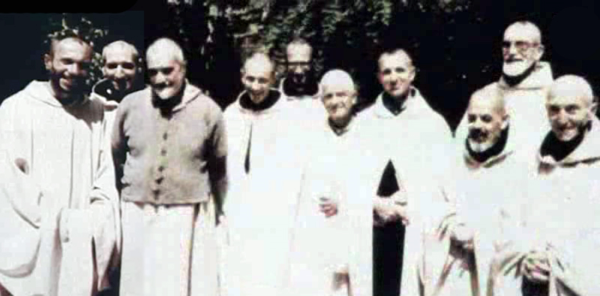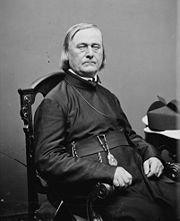Tag: religion
Tribute to Jean-Marie Domenach
By rereading notes taken years ago during reading the return of the tragic of Jean-Marie Domenach , I remember our meeting. I see him arriving in my little studio of the fork, asking me a glass of wine and I, starting to explain to him by the menu the orientation that I wanted to give to our interview. And he looked at me with round eyes, still rounding, and suddenly throwing me enthusiastic: "But you have read my books ... I am not used to meeting journalists who have read my books".
This meeting will remain as one of the very beautiful encounters I have had as a journalist. We will discuss more than two hours of morality and moralism, Saint-Just and Nietzsche. From God too. Above all from God.
The path of God passes through our humanity…
Extraordinary passage from Blessed Cardinal Newman :
By sinning, by suffering, by correcting ourselves, by improving ourselves, we advance towards the truth by the experience of error; we achieve success through failure. We do not know how to act well except after having acted badly. […] We know what is good not positively but negatively; we don't see the truth all at once to go towards it, but we throw ourselves on the error to experience it, and we discover that it is not the truth. […] This is the mechanism by which we achieve success; we walk towards the sky backwards; we aim our arrows at a target and think that he is most skilful who misses the fewest.
Tibhirine's breath

It's a smart movie. And in saying that, a lot has already been said. At a time when stupidity reigns unchallenged, making an intelligent film about faith allows you to get your head above water and inflate your lungs; to satiate. Men and Gods exemplifies the life of the monks. That the monks in the film live in Algeria comes second in my opinion. It comes in the background to dodge the eternal debate of the "Clash of Civilizations". This debate that wealthy people treat with contempt and that less well-off people try to flee on a daily basis.
Philia, agapê and other little things…
 The Greeks used three words to designate love: éros, carnal love, philia, friendship, and agapê, accomplished and mature love.
The Greeks used three words to designate love: éros, carnal love, philia, friendship, and agapê, accomplished and mature love.
Is love only there to comfort us? Shouldn't we seek to give meaning to love as to every event in life? Only meaning saves the human condition. The meaning… The big question. The inevitable question. Nothing is worth living in the absence of meaning. Meaning is man's big question, especially since he understands nothing about it and has no control over it. As often the man controls all the less that he screams to believe the contrary. A love whose meaning is absent will remain an eros. It is possible to answer that eros also gives meaning: the caresses, the kisses, the bodies that fit together are a discovery of the other. If the Greek eros is most often a matter of abduction, of possession, it would be wrong to sum it up there. The boundaries between the three loves can be fine. Our time likes to relativize these borders. Transgression awaits the slightest of our steps; or our missteps.
The sense of love surpasses us, and elevates us. God gives us His son and causes him to die on the cross for the sole purpose of giving meaning to our lives. He eradicates the sin by bringing it to light. It designates love as the only alternative to evil. And we must also remember Saint Paul:
When I would speak in tongues, that of men and that of angels, if I lack love, I am a resounding metal, a resounding cymbal.
When I have the gift of prophecy, the science of all mysteries and all knowledge, when I have the most total faith, that which moves mountains, if I lack love, I am nothing .
When I would distribute all my goods to the hungry, when I would deliver my body to the flames, if I lack love, I gain nothing.
Love takes patience, love is helpful, it doesn't be jealous, it doesn't show off, it doesn't get puffed up, it doesn't do anything ugly, it doesn't seek its interest, it doesn't does not irritate, he does not harbor grudges, he does not rejoice in injustice, but he finds joy in the truth.
He excuses everything, he believes everything, he hopes for everything, he endures everything.
Love never goes away.
The prophecies? They will be abolished.
Languages ? They will end.
The knowledge ? It will be abolished.
For our knowledge is limited and our prophecy is limited. But when perfection comes, what is limited will be abolished.
When I was a child, I spoke like a child, I thought like a child, I reasoned like a child. Having become a man, I put an end to what was proper to the child.
Now we see as in a mirror and in a confused way, but then it will be face to face.
Now my knowledge is limited, but then I will know as I am known.
So now these three remain, faith, hope and love, but love is the greatest.(1)
We see that agape sits at the top of love. Agape is this ultimate end, as the true meaning of love. Reading Saint Paul, we also realize that friendship is entirely contained in love. Philia can be thought of alone, but its Christian purpose is to become an agape. We also understand that his failure will be not to succeed in this transformation. Imagine a philia between a man and a woman: there is always a risk of seduction. What is a philia abandoning itself in eros?
Finally, it should be noted that the agapê is a love devoid of seduction. He does not use "stuff", fireworks. Obviously these are left to the prince of this world.
A new friendship is a revealed world that extends to our feet. What reflex do we have? Facing a world that stretches out at our feet. Are we responsible for it ( respondere , do we answer for it)? Did we do anything to deserve this new love? No, we haven't done anything. So little meaning has come out of our daily gestures. Our first instinct is often to trample this world under foot, because immediately in the face of beauty we think of appropriating it. Here is the man. What is beautiful, what is better, what is beyond us, must belong to us. Not God. No, not God. Because modern man has stopped believing in God. Too big, too strong, no time for this crap he can't make his own. What exceeds it deserves only possession or contempt. We must always go faster. We do not have time. If one cannot possess, if one cannot enjoy, one despises. It is therefore easy to understand the popularity of eros.
All creatures lack something, and not just not being a creator.
To those who are carnal, we know, there is a lack of pure beings.
But to those who are pure, it must be known, they lack carnality.(2)
So this world knocking at the door? If he gives himself, we dominate him. If it gives itself, we possess it. This sums up our sufficiency vis-à-vis the Other. Because there is no place more egalitarian than love. Love is truth and everyone is equal in the face of truth.
Many friendships fail after a while. In the majority of cases, this failure reveals itself as soon as one or both parties take pride in themselves. As soon as one or both parties want to possess, or comfort themselves in a deaf feeling of superiority. As soon as one or both parties adopt a paternalistic position, there is no more listening. As soon as there can no longer be any real listening, as soon as it is subject to a value judgment, an invisible and unspoken, but full and complete, hierarchy sets in. There is no longer the minimum required to speak and hear each other. The word no longer makes sense.
1- We also know that in this offering of Saint Paul we can replace the word love with the name of Jesus. We will enjoy reciting these stanzas in this way and becoming impregnated with them.
Translation of the author of Saint Paul's First Epistle to the Corinthians (1 Cor 13, 1).
2- Péguy, The Porch of the Mystery of the Second Virtue.
What Monsieur Ouine says in our time…
Notes on the French Revolution
 Most of the quotes concerning the French Revolution given in this article come from the " Historically Correct " book by Jean Sévillia.
Most of the quotes concerning the French Revolution given in this article come from the " Historically Correct " book by Jean Sévillia.
—
Solzhenitsyn: “Men not being endowed with the same capacities, if they are free, they will not be equal, and if they are equal, it is because they are not free. »
—
There is a revolutionary idea of permanent invention that still continues today. It is an idea that is also contained in the idea of progress. That everything remains to be invented. René Guénon said: "There are no new ideas on earth. ""
—
Robespierre: “If Louis can be the subject of a trial, he can always be absolved; he may be innocent: what am I saying? He is presumed to be so until he is judged; but if Louis can be presumed innocent, what becomes of the Revolution? »
—
Westermann at the Convention: “There is no more Vendée: it is dead under our free sword. I crushed the children under the feet of our horses, massacred the women who will no longer give birth to brigands. I don't have a prisoner to blame me for. I wiped it all out. »
—
Carrier (after drowning 10,000 innocent people in the Loire): “We will make France a cemetery, rather than not regenerating it in our own way. »
—
“The Vendée must be annihilated because it dared to doubt the benefits of freedom. »
Smet's Father
 There are incredible stories. that of Pierre Jean Smet is one of them.
There are incredible stories. that of Pierre Jean Smet is one of them.
Still discussing with the same joy with my friend JB du C. the other evening, I talk to him about my idea of a priest arriving in Japan in the 1830s, something impossible or almost. Japan is totally closed to the outside world, the Meiji era is quietly preparing behind the scenes, and especially the religious orders, like the Western world, have fallen swooning over the New World. Yes, but here we must always hope for a great figure of an independent Catholic.
Pierre Jean de Smet is one. This priest nicknamed "black cassock" by the Indians, negotiated with Sitting Bull while Lincoln asked him for advice. Not having a forked language, he often succeeds in miracles (reading his life shows how much this word can still have a meaning). Incredible journey in the rocky mountains and formidable source of inspiration, Smet's father put ethics where politicians already put cynicism and pragmatism.
The secular and modern world
 There is the beautiful Italian word "vergogna", there is the French word emptied of its meaning in modern times "shame".
There is the beautiful Italian word "vergogna", there is the French word emptied of its meaning in modern times "shame".
Who hasn't found themselves in the middle of a dinner with dear friends wanting to flee the place, to flee so as not to have to endure stupidity, incoherence, petty-bourgeois remarks, vulgarity? The need for clean air is felt when our lungs are no longer sufficient to store the little ambient air. Very often these people that we love, who only repeat what they have read in the newspapers, on blogs, irritate us… The Internet can be a pure enemy of intelligence.
Usually at these dinners, the worst will be reached when talking about religion.
The secular and modern world has enacted a monstrous, protean, incandescent law: religion will have to be confined to “the private sphere”. I put this last media expression in quotes for reasons that we will understand, as often with media expressions, it means nothing. I am not against the idea of a certain discretion in the practice of religion, but I am against the idea of hiding from being a Christian. Especially in a country like ours! But wouldn't the problem be there and nowhere else? Doesn't this country stop hating itself?
